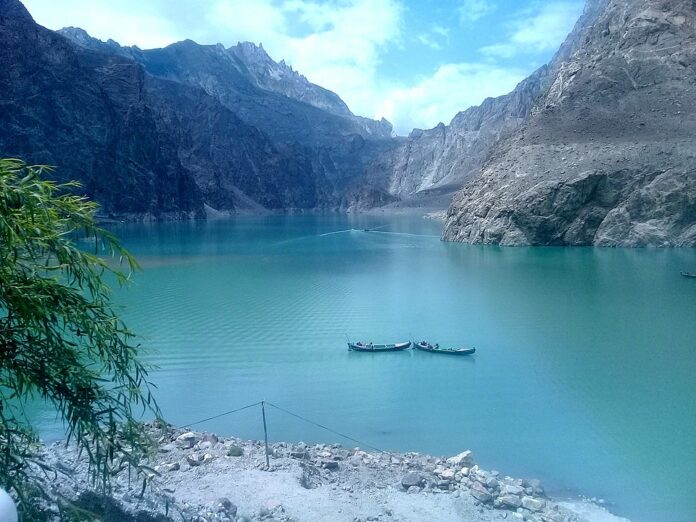ISLAMABAD: The Gilgit-Baltistan Environmental Protection Agency (EPA) has sealed a 30-room section of a well-known hotel, Luxus Hunza, located on the banks of Attabad Lake and imposed a fine of Rs1.5 million over non-compliance with construction and environmental regulations.
The enforcement action follows a viral video posted by a foreign travel vlogger, who alleged that sewage from the hotel was being discharged directly into the lake.
Although EPA officials confirmed that their recent inspection did not find evidence of sewage leakage into the lake, they did identify other violations of regulatory standards. Consequently, the hotel has been penalised and given a few weeks to comply with the rules in order to have the sealed section reopened.
EPA Director Khadim Hussain stated that the action was taken due to the hotel’s failure to adhere to approved construction plans and environmental safeguards. He added that the agency had previously taken similar action against the same hotel in October last year, when wastewater discharge from the western side of the facility was confirmed. At that time, the hotel was temporarily sealed and fined.
The management of the hotel has denied the recent allegations. Director Shan Lashari described the claims made in the viral video as “baseless and misleading,” asserting that the murky water observed near the property was the result of a natural stormwater drain, not hotel waste.
Local environmentalists and social activists have voiced longstanding concerns over unchecked development around Attabad Lake. A local activist Mr Zia emphasized that tourism and development should not come at the cost of environmental degradation, adding that many structures near the lake violate the legal requirement that prohibits construction within 50 to 200 feet of water bodies. He further claimed that most lakeside hotels lack proper water treatment facilities despite this being a condition for construction approval.
Proposals from local residents to promote eco-friendly tourism such as building sustainable huts away from the lake and planting trees instead of allowing concrete hotels, have largely been overlooked by authorities.
Attabad Lake, formed in 2010 due to a massive landslide in Hunza Valley that blocked the Hunza River, has since become a vital water reservoir and a symbol of ecological and economic resilience.
As one of Pakistan’s key tourist attractions, the lake now faces growing environmental pressure, raising urgent questions about sustainable development in the region.




